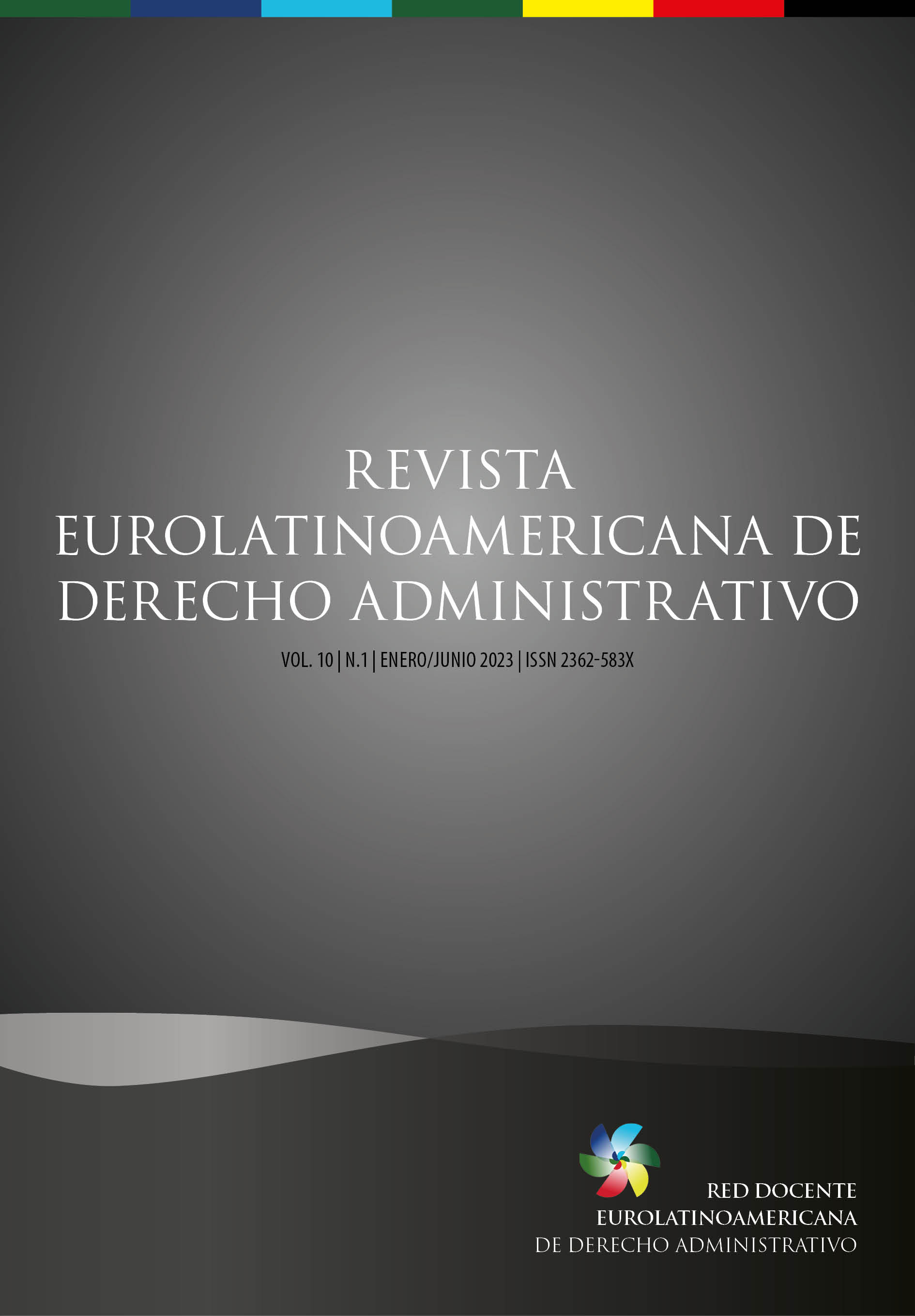El derecho a la protección de datos personales en la era digital
DOI:
https://doi.org/10.14409/redoeda.v10i1.12626Palabras clave:
datos personales; derechos humanos; tecnología; inteligencia artificial; privacidad.Resumen
Los datos personales se han convertido en el oro del siglo XXI, sin embargo, no todos los involucrados le dan el valor que merece, solamente aquellos que logran monetizarlos. Esta situación se ha complicado más con los avances tecnológicos que no cuentan con un enfoque de derechos humanos y ético para salvaguardar la privacidad y los datos personales de la población, tal como se está observando con las diversas plataformas de Inteligencia Artificial.
Citas
ALEXY, Robert. A Theory of Constitutional Rights. Estados Unidos. Editorial Oxford University Press, 2010.
BRODERSEN, Juan. Elon Musk y más de mil expertos piden poner en pausa los avances en inteligencia artificial: “Hay grandes riesgos para la humanidad”. Periódico El Clarín. Argentina. 29 de marzo de 2023. Disponible en: https://www.clarin.com/tecnologia/elon-musk-mil-expertos-piden-poner-pausa-avances-inteligencia-artificial-grandes-riesgos-humanidad-_0_8sHKPyJKnV.html.
CORPORATEIT. Big Data: Los beneficios de usarlo correctamente por un gobierno. 27 de diciembre de 2019. Disponible en: https://corporateit.cl/index.php/2019/12/27/big-data-los-beneficios-de-usarlo-correctamente-en-el-gobierno/.
DÍAZ, Raquel. La inteligencia artificial pone en riesgo 300 millones de puestos de trabajo en todo el mundo. Periódico El Mundo. España. 29 de marzo de 2023. Disponible en: https://www.elmundo.es/tecnologia/2023/03/29/64248311fdddffab0b8b45cf.html.
DNV. Internet de las Personas: reinventando la asistencia sanitaria. España. Disponible en: https://www.dnv.es/life-sciences/internet-of-people/index.html.
FERRAJOLI, Luigi. Derechos y Garantías: La ley del más debil. 8ª ed. 1ª reimpresión. Madrid, España. Editorial Trotta, 2019.
GARCÍA, Jorge G. Si mis datos personales valen dinero, ¿por qué no veo ni un euro? Periódico El País. España. 9 de enero de 2020. Disponible en: https://elpais.com/retina/2020/01/09/tendencias/1578551761_093139.html.
GLOBAL PRIVACY ASSEMBLY. 42ND closed session of the global privacy assembly, adopted resolution on accountabiility in the development and use of artificial intelligence. Octubre de 2020. Disponible en: https://globalprivacyassembly.org/wp-content/uploads/2020/11/GPA-Resolution-on-Accountability-in-the-Development-and-Use-of-AI-EN.pdf.
GRUPO DE TRABAJO DE PROTECCIÓN DE DATOS DEL ARTÍCULO 29. Dictamen 2/2010 sobre publicidad comportamental en línea. Bruselas. 22 de junio de 2010, p. 7. Disponible en: https://ec.europa.eu/justice/article-29/documentation/opinion-recommendation/files/2010/wp171_es.pdf
MERINO, Marcos. Demandan por intrusismo profesional a una inteligencia artificial que ejerce como abogado generando documentos para reclamaciones. 14 de marzo de 2023. Disponible en: https://www.genbeta.com/actualidad/abogado-inteligencia-artificial-donotpay-demandado-intrusismo-profesional-haberle-impedido-actuar-tribunal.
MÉXICO. Suprema Corte de Justicia de la Nación, Dignidad Humana. Constituye una Norma Jurídica que consagra un derecho fundamental a favor de las personas y no una simple declaración ética, Semanario Judicial de la Federación. Tesis 1ª./J.37/2016 (10ª.) Libro 33, Agosto de 2016, Tomo II, Décima Época, Página 633, Número 2012363. Disponible en https://sjf2.scjn.gob.mx/detalle/tesis/2012363.
MÉXICO. Suprema Corte de Justicia de la Nación. Amparo en revisión 134/2008, 2ª LXIII/2008. Semanario Judicial de la Federación y su Gaceta, Novena Época, T. XXVII, mayo de 2008, p. 229. Disponible en: https://www.scjn.gob.mx/Transparencia/Documents/CriteriosPJF/Tesis_Tematica_Vida_privada_privacidad_e_intimidad.pdf
MÉXICO. Suprema Corte de Justicia de la Nación. Tesis: 1ª. CCXIV/2009. Semanario Judicial de la Federación y su Gaceta. Tomo XXX, Diciembre de 2009, página 277, Registro digital 165823. Disponible en: https://www.catalogoderechoshumanos.com/165823-2/.
PÉREZ, Isaías. Ciberdelincuencia acecha a menores. Periódico El Universal, México, 21 de febrero de 2023. Disponible en https://www.eluniversal.com.mx/techbit/ciberdelincuencia-acecha-menores/.
PINTO, Teguayco. Facebook afronta otra demanda por orientar sus anuncios de forma discriminatoria. España. Periódico El País. Tecnología, 18 de noviembre de 2019. Disponible en: https://elpais.com/tecnologia/2019/11/13/actualidad/1573669848_630951.html?event=go&event_log=go&prod=REGCRARTTEC&o=cerrtec.
QUIJANO DECANINI, Carmen. Derecho a la privacidad en Internet. México. Editorial Tirant lo blanch. 2022.
SCHWABE, Jürgen. Sentencia de la Primera Sala, del 15 de diciembre, 1983 -1 BvR 209, 269, 362, 420, 440, 484/83, en Extractos de las Sentencias más relevantes. Konrad-Adenauer-STIFTUNG e. V., 2009, p. 97. Disponible en https://www.kas.de/c/document_library/get_file?uuid=0a66a4a6-1683-a992-ac69-28ª29908d6aa&groupId=252038.
TUDARES, Andrés. Italia bloquea el acceso a ChatGPT por incumplir la norma de protección de datos. MUNDIARIO, 01 de abril de 2023. Disponible en: https://www.mundiario.com/articulo/tecnologia-ciencia/italia-bloquea-acceso-chatgpt-incumplir-norma-proteccion-datos/20230401075254265952.html.
Descargas
Publicado
Cómo citar
Número
Sección
Licencia
Derechos de autor 2023 MARIA FERNANDA SANCHEZ DIAZ

Esta obra está bajo una licencia internacional Creative Commons Atribución 4.0.
Autores que publican en esta revista están de acuerdo con los siguientes términos:
- Autores mantienen los derechos autorales y conceden a la revista el derecho de primera publicación, con el trabajo simultáneamente licenciado bajo la Creative Commons - Atribución 4.0 Internacional que permite compartir el trabajo con reconocimiento de la autoría y publicación inicial en esta revista.
- Autores tienen autorización para asumir contratos adicionales separadamente, para la distribución no exclusiva de la versión del trabajo publicada en esta revista (ej.: publicar en repositorio institucional o como capítulo de libro), con reconocimiento de autoría y publicación inicial en esta revista.
- Autores tienen permiso y son estimulados a publicar y difundir su trabajo online (ej.: en repositorios institucionales o en su página personal) a cualquier punto antes o durante el proceso editorial, ya que esto puede generar alteraciones productivas, así como aumentar el impacto y la citación del trabajo publicado (Véase El Efecto del Acceso Libre).



























.png)





